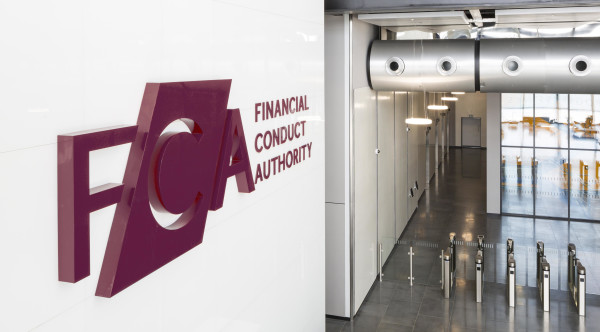

In a podcast called Inside FCA: What is the consumer duty price and value outcome?, head of competition policy, Ed Smith explained that price and value is one of the four outcomes that firms need to assess under the consumer duty.
There are four in total: the products and services outcome, the price and value outcome, the consumer support outcome and the consumer understanding outcome.
“Price and value is one of the core ones and essentially what it's saying is that firms need to ensure that the price a customer pays for a product is reasonable compared to the overall benefits that the customer gets from the product,” he said.
Smith said the FCA has seen many instances of financial products that represent poor value.
Using insurance as one example, he said there are some insurance products where the customer actually receives few benefits in terms of the cover that they get in relation to what is often quite a significant premium; or where they pay broker commissions that can be unreasonable relative to the benefits of the products that they get.
Other examples might be savings accounts where the regulator has done a lot of work looking at what long standing customers receive in terms of interest rate levels.
"And often these examples of poor value are taking advantage, firms are taking advantage of behavioural biases that we as consumers have,” he said. “So they can use, for example, flashy upfront discounts to hide the true cost of a product to a customer.
“Or they might try and attract customers at the point of sale through impulse add on products that they probably don't really need and can represent poor value.”
Smith said with the price and value outcome, the regulator is ready to put an onus on firms to address poor value, to really examine and challenge themselves about whether products are really a reasonable cost compared to the benefits that they give to the customer.
Amid the cost of living crisis, Smith said it is “important context” for the new consumer duty.
“It's doubly important in hard times that customers can be sure they're getting fair value for the products and are not being ripped off or paying for services that they don't really use or value,” he said.
“So, given the cost-of-living crisis in context, it's really important that firms challenge themselves on whether the cost of the product is commensurate with the benefits that a customer receives.”
Smith said the important thing is that cost of living really underlines the importance of the price and value outcome.
“The other thing is that cost of living will also increase the vulnerability of certain customers and put some customers in really desperate situations,” he said.
“And so, firms really must factor this in both in their charging structures to ensure those charging structures are fair but also in another element of the consumer duty, and the support they give to customers that are facing very difficult circumstances.”
Negotiate fees - to do or not to do?
Speaking on the podcast, Smith said the rules on price and value do not serve to prevent firms negotiating fees with clients.
“It's okay for firms to charge customers different prices,” he said. And equally it's okay for manufacturers to negotiate different deals with different distributors.
“The important thing is to check that, as I said before, there aren't groups of end customers who are getting poor outcomes as a result.”
Smith said what the firm needs to check is that those customers paying different prices are still getting fair value at the end, they're still receiving the benefits and they still consider those benefits to be commensurate with even higher prices that they may be paying ultimately.
He argued that it is important manufacturers and distributors collaborate to assess fair value.
“A manufacturer must be able to demonstrate that their product, plus any associated charges, be it commissions, be it fees that advisors might levy, ultimately provide fair value for the target market," he said.
“And that includes making consideration of the overall charges that the customer might pay as part of that distribution strategy.”
Smith said in turn, the distributor needs to obtain information from the manufacturer, such as a high-level summary of the benefits to the target market, information on overall prices or fees and confirmation that the manufacturer considers that the total benefits are proportionate to the total cost.
FCA action
Smith said the City watchdog wants firms to assess upfront the price that customers get and the price that a customer pays for the product over time, because often the price can be contingent on the way that a customer uses a product.
“What we want firms to do is to look upfront at that price and value equation, but then consistently through the lifetime of the product to make sure that it represents ongoing value for the customer in terms of the benefits that it's receiving, the way that it's using that product," he said.
The FCA will monitor whether products are fairly priced and good value once the duty has come into force.
The implementation period lasts till July 2023 for new and existing products and then there's an additional year to July 2024 for back-book or closed products.
In that implementation period, firms need to undertake the value assessments of all their products using the data and evidence about whether they are fair value or if not, then make necessary changes to the price or structure of the benefits to ensure that customers do receive that fair value.
The City watchdog expects firms to use an appropriate framework for assessing value.
“Once the duty has come into force, we are planning a programme of supervisory and if necessary, enforcement work to ensure that firms have implemented the duty correctly,” he said.
“We will be particularly interested in areas like, say, back-book charging or exit fees or low value products that have perennially been under the FCA’s microscope. We'll be looking to ensure that firms have made the changes that we think are necessary to bring those products into line with fair value, a fair value framework.”
Smith added: “If firms aren't conducting a proper assessment of the price and value of their products, if they haven't used appropriate evidence to demonstrate that it's fair value, if they haven't thought about different cohorts of customers and the sort of value that they're receiving; I think firms can expect us to take action, including enforcement action against them once they once the duty is in force.”
sonia.rach@ft.com
What do you think about the issues raised by this story? Email us on FTAletters@ft.com to let us know



